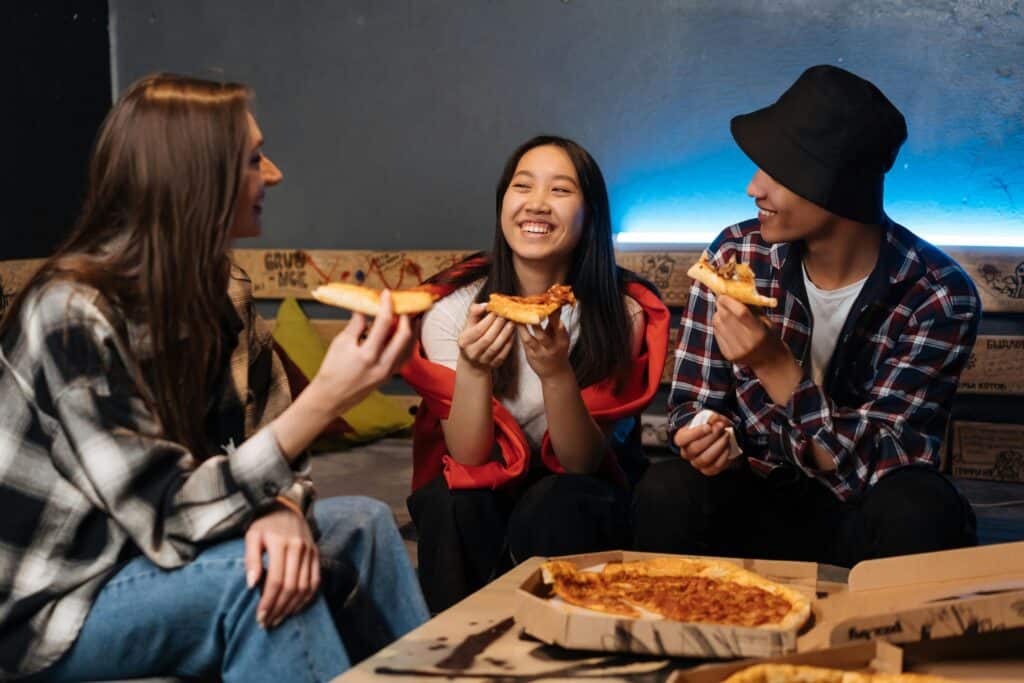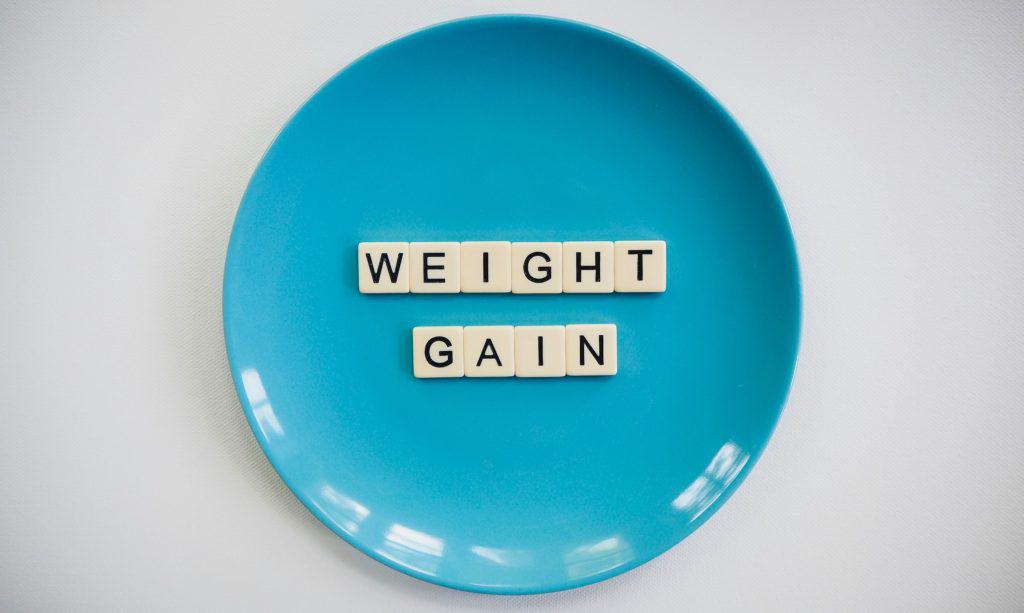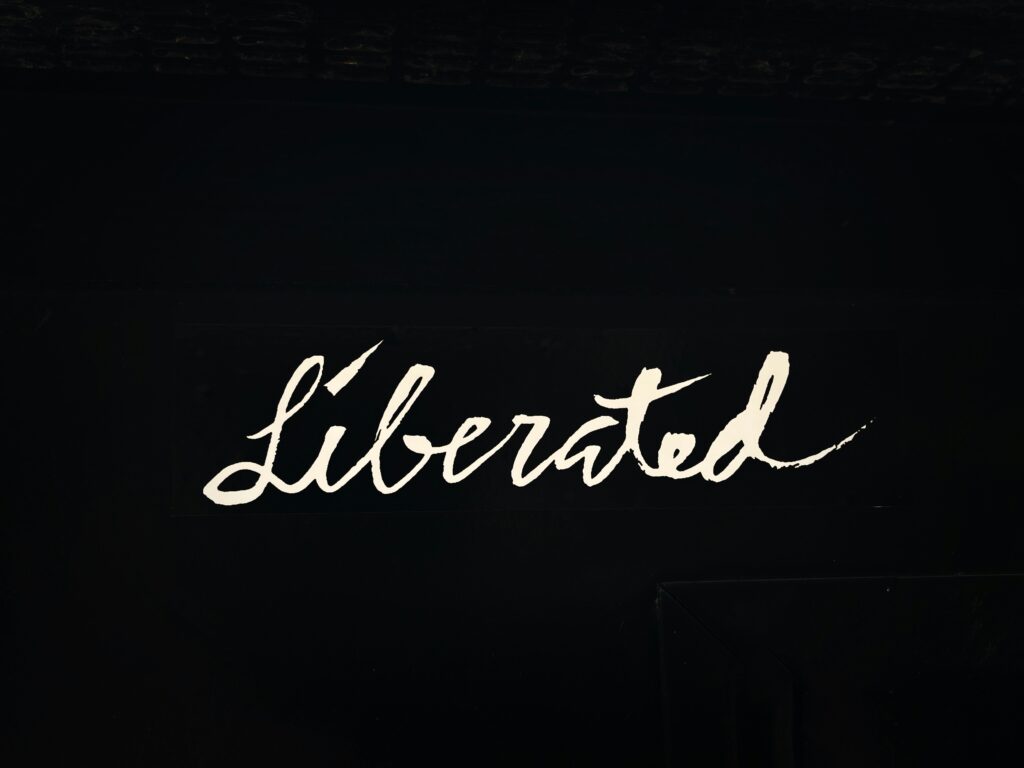When I lived with anorexia nervosa the way I thought about food was entirely different than how I think about food now years after recovering.
In this blog I’m going to share with you some of the major distinctions in my then vs now thought patterns because while I often use my own experience as the example these thought patterns are not unique to me. They’re core to what we’d call the psychopathology of an eating disorder and over the years since my recovery and having now worked with thousands of people during their recoveries I’ve heard the exact same sentiments many times. The intention of my sharing is to help you gain insight into why people become so stuck in eating disorders because it goes beyond food. It goes to what we feel, think and believe because what we feel, think and believe decides how we act. As always even more crucially than helping with understanding and insight so we can treat people in recovery with more compassion my main motivation is to help shine a light on the way out because that’s what matters to me most. That those still stuck in the unrelenting torment of an eating disorder get the chance to experience freedom.
So, lets dive into some of the differences in mindset of living with an eating disorder compared to living with a healthy, happy mind. Beginning with…
- Eating Was for Show

When I lived with anorexia eating became a thing that was entirely for show.
I made sure that there was always a witness to the food I ate.
For years and years and years I never ate anything on my own. And it wasn’t an effort to do this. It was an effort to eat in front of people and an impossible effort to eat on my own. I had to have what I ate observed otherwise it was a waste. I couldn’t justify eating for myself. I lost the desire to eat for myself. It became something I didn’t even consider.
If no one was going to believe that I’d eaten (rightly so because I often lied that I had when I hadn’t) then there was no point to having eaten that thing. It was only worth it if someone knew I’d done it. There was no factoring in eating for myself to take care of myself or because I was hungry or wanted food. None of that came into play anymore. I simply ate to appease others. To prove to others that I was eating, was trying to recover or a lot of the time to appear “normal” or not worry people.
I remember something that used to make me feel so mad would be when I’d “have to” eat when I went out with friends or to dinner or did something that involved food. I ate for show, because it would be weird if I didn’t, because I felt pressured into it, because I wanted others to see me eating normally. I cared more about what others thought about what I ate (or what I thought they thought about what I ate) then what I thought about what I ate!
I look back at all that now and think how strange. What a strange way to think about food. What an exhausting way to think about food. It’s no wonder eating became a no-go zone. I think in many ways it just became too much work to satisfy the ever-expanding conditions under which I could eat so my mind simply started to say no without too much more thought. It was easier that way. But the thing is that evidently, it’s not actually easier that way and what truly needed to change was not my ability to meet all these weird and wonderful conditions but instead my ability to do away with these conditions! And be free to “just eat” (my most hated phrase when I lived with an eating disorder).
But now I do. Now, I very much “just eat”.
I don’t know how else to word this but nowhere does having someone witness what I eat come into the decisions I make around food. I can’t even imagine what I’d have to do inside of my mind to get mad that someone didn’t believe I’d eaten something. I can’t imagine what I’d have to do inside of my mind to be concerned at all about what someone else thought about the way I ate.
2. Eating Was a Means to an End

When I lived with anorexia eating became a thing that was entirely for show.
I made sure that there was always a witness to the food I ate.
For years and years and years I never ate anything on my own. And it wasn’t an effort to do this. It was an effort to eat in front of people and an impossible effort to eat on my own. I had to have what I ate observed otherwise it was a waste. I couldn’t justify eating for myself. I lost the desire to eat for myself. It became something I didn’t even consider.
If no one was going to believe that I’d eaten (rightly so because I often lied that I had when I hadn’t) then there was no point to having eaten that thing. It was only worth it if someone knew I’d done it. There was no factoring in eating for myself to take care of myself or because I was hungry or wanted food. None of that came into play anymore. I simply ate to appease others. To prove to others that I was eating, was trying to recover or a lot of the time to appear “normal” or not worry people.
I remember something that used to make me feel so mad would be when I’d “have to” eat when I went out with friends or to dinner or did something that involved food. I ate for show, because it would be weird if I didn’t, because I felt pressured into it, because I wanted others to see me eating normally. I cared more about what others thought about what I ate (or what I thought they thought about what I ate) then what I thought about what I ate!
I look back at all that now and think how strange. What a strange way to think about food. What an exhausting way to think about food. It’s no wonder eating became a no-go zone. I think in many ways it just became too much work to satisfy the ever-expanding conditions under which I could eat so my mind simply started to say no without too much more thought. It was easier that way. But the thing is that evidently, it’s not actually easier that way and what truly needed to change was not my ability to meet all these weird and wonderful conditions but instead my ability to do away with these conditions! And be free to “just eat” (my most hated phrase when I lived with an eating disorder).
But now I do. Now, I very much “just eat”.
I don’t know how else to word this but nowhere does having someone witness what I eat come into the decisions I make around food. I can’t even imagine what I’d have to do inside of my mind to get mad that someone didn’t believe I’d eaten something. I can’t imagine what I’d have to do inside of my mind to be concerned at all about what someone else thought about the way I ate.
3. Eating Felt Temporary

This one ties into the point above. Eating became something I thought about in terms of gaining weight. I was either not eating because it felt wrong to eat or I was eating with immense effort to gain weight and recover without a plan or idea of what came next (after the weight gain). I don’t think this was entirely my fault. I was told time and time again that weight gain was the magic bullet of recovery. That all I had to do was gain weight to the magical “healthy” BMI and my brain would suddenly start working in a different way. An eating disorder free way. That didn’t happen and it wasn’t because I didn’t gain the weight. I did time and time again. But it was only ever temporary because there was an incredible effort that went into gaining that weight and that renourished body didn’t feel like my body. It never came naturally let alone easily to feed myself and therefore it was destined to only ever be temporary. No one can maintain that amount of effort for life. It was the thoughts, the feelings and the beliefs that I also needed help to change and not just the actions to gain the weight and it took more fifteen years to find the help that could help me to do that.
Now, eating is something I just do. It doesn’t require immense planning or a battle within myself. It’s not something I’m dreading or waiting for the day I don’t have to do it anymore. When I lived with an eating disorder, I weirdly thought that once I got over the eating disorder I wouldn’t have to eat anymore (without really knowing that I felt this way). How strange. Now, eating is a part of life and not something I do to recover from an eating disorder or to gain weight or even maintain weight. It is just something my body knows how to do, no calorie counting, no planning, no juggling, no battle. A feeling that when I lived with the eating disorder, I never thought I’d be able to experience again.
Summary

So, you might be reading this and be thinking that makes sense but how do I begin to turn things around for myself or how do I help someone I love break out of those non-useful thought patterns, feelings and beliefs that are keeping them stuck in the eating disorder so they can begin to do things differently?
I’m glad you asked. To me there is one clear way of working with our minds to overcome unconscious patterns, habits, blocks, thoughts, feelings and beliefs. Hypnotherapy or Neurolinguistic Programming (NLP). When you’re living with an eating disorder you don’t have a conscious problem. Even if you intentionally and consciously altered what you were eating to begin with (with the best of intentions) once it enters the realm of an eating disorder you are no longer in conscious control of that. Which means no amount of education, knowledge, CBT, willpower, talk therapy, determination and so on and so forth will help you make the changes you really want to.
Because the changes you want to make and indeed must make if you want to have any chance at experiencing life free from the eating disorder are unconscious. Hypnotherapy and NLP are tools we use to intentionally work with our unconscious minds to help them understand things in new ways, overcome old patterns, blocks, beliefs and feelings that are running the behaviours we see someone living with an eating disorder outwardly engage in (and think why on earth would someone do such harmful things to themselves).
So, what really needed to happen for me to recover from an eating disorder was to learn how to feel, think and believe different things than the eating disorder feelings, thoughts and beliefs! And I’d already changed my mind quite drastically once (unknowingly and unintentionally) to get into an eating disorder in the first place, so it was just a matter of intentionally and deliberately working with my mind to get it to do more of what I wanted and less of what I didn’t want. Which felt impossibly hard until I had incredible professional guidance on how to do this. Because even though you’ve struggled and felt stuck and that it’s impossible to change no matter what you do the truth is there are ways for changing these things. Many people have.
Don’t bother messing around fighting yourself, shaming yourself, telling yourself you’re just not trying hard enough to recover or waiting for some outward condition to be met before you recover because none of its true and none of it is the way you will actually recover.
If you’re curious to learn more about working with your mind, which if you think about it is what you want not just in recovery from an eating disorder but also for the rest of your life beyond an eating disorder… then get in touch with me by filling out the form on my contact page or emailing me directly at [email protected]. If you’re curious but not quite ready to take the leap to working one on one (just yet) check out my book “Ready, Now: Your Guide to Doing Recovery from Anorexia Different this Time“
Here’s to doing things differently this time.
With my whole heart I hope you find this information valuable.

Become Great. Live Great.
Bonnie.


